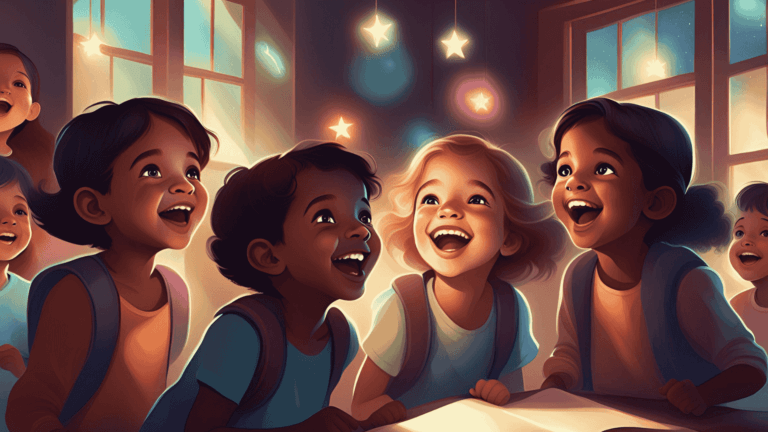In a small, sunlit classroom, four-year-old Maya carefully arranges colourful wooden blocks into a towering structure. Her tiny hands moved with focus, her brow furrowed in concentration. As she places the final block, a smile lights up her face. Maya’s teacher observes quietly from the corner, stepping in only when Maya looks up for guidance. This is no ordinary classroom—this is a Montessori environment, where children are encouraged to learn at their own pace, guided by their innate curiosity and love for discovery.

Benefits of Child-Led Montessori Learning
Maya’s story is not unique. Across the globe, the Montessori method has shaped countless lives, fostering independence, creativity, and a lifelong love for learning. But what exactly makes this approach so timeless? Let’s explore the Montessori advantage through Maya’s journey.
Maya’s Montessori Journey
Discovering Independence
At just three years old, Maya entered her Montessori classroom. Unlike traditional setups filled with rows of desks, this space was designed for her. Low shelves displayed an array of materials—from puzzles to sensory tools—each within easy reach. Maya’s first lesson wasn’t about letters or numbers; it was about pouring water from one jug to another.
Though the task seemed simple, it taught her coordination, patience, and responsibility. Over time, Maya learned to tie her shoes, prepare her snacks, and even clean up after herself. These small victories ignited her confidence, showing her that she was capable of managing her own world.
Learning Through Curiosity
Maya’s love for animals led her to the “Parts of a Frog” puzzle one day. Instead of being handed a worksheet, she was encouraged to explore. She traced each piece, coloured her own version, and even looked at real frogs during an outdoor session. This hands-on approach turned a simple puzzle into a multidimensional learning experience.
By following her interests, Maya didn’t just memorise facts; she developed a deeper understanding of life sciences. This natural learning process mirrored her innate curiosity, making education feel like an adventure rather than an obligation.
Building Social Skills
In the Montessori classroom, Maya interacted with children of varying ages. At first, she hesitated to approach older peers, but over time, she found herself learning from them. In turn, she began helping younger classmates with their tasks.
These interactions taught Maya valuable lessons about empathy, leadership, and collaboration. The multi-age setup allowed her to grow both as a learner and a mentor, fostering a sense of community and mutual respect.
The Timeless Philosophy Behind Montessori
The Montessori method, developed by Dr Maria Montessori over a century ago, is based on the idea that children are naturally curious and capable of directing their own learning. The approach emphasises:
- Child-Centred Learning: Classrooms and materials are designed to cater to each child’s developmental stage.
- Hands-On Exploration: Learning tools engage the senses, allowing children to absorb concepts through direct experience.
- Prepared Environment: Educators act as guides, creating a space where children feel secure to explore and learn.
- Focus on Life Skills: Beyond academics, Montessori education prioritises practical skills and emotional intelligence.
Why Montessori Remains Relevant
In an age dominated by technology and standardised testing, the Montessori method stands as a beacon of holistic, child-centred education. It nurtures not just academic skills but also independence, creativity, and a sense of responsibility.
For Maya, these early lessons have set the stage for a lifetime of growth and self-discovery. As she steps into new environments, the confidence and curiosity she developed in her Montessori classroom will continue to guide her.
Conclusion
The Montessori advantage lies in its timeless philosophy that respects and nurtures the whole child. By focusing on individual strengths, interests, and developmental needs, this approach ensures that children like Maya grow into confident, capable, and compassionate adults.
For parents and educators seeking a method that honours the joy of learning, Montessori remains a timeless choice.
Welcome to the World of Early Childhood Education: Where Young Minds Thrive
Exciting News! We’re thrilled about our Post-Graduate Diploma in Early Childhood Education— a program designed for individuals passionate about shaping the future of young learners during their most formative years.
Inspire, nurture, and empower the next generation with the skills and expertise to create meaningful learning experiences. Early childhood educators are pivotal in fostering curiosity, building resilience, and laying the foundation for lifelong learning. If you dream of making a real difference, this program is your pathway to a fulfilling career and professional growth.
Program Highlights
- Duration: 1 year
- Learning Format: Flexible online learning with weekly live instructor-led sessions
- Hands-On Training: Two in-person workshops and a practical internship to apply your knowledge
- Curriculum Focus: Foundations in child development, psychology, inclusive education, and more
- Career Support: Access to the recruitment drive at Ekya Early Years
Why Choose Us?
Our immersive program combines theoretical knowledge with hands-on practice to ensure you’re equipped to create child-centered, inclusive learning environments. With a limited cohort size, you’ll benefit from personalized attention, interactive modules, and guidance from experienced instructors.
 Register Your Interest Today!
Register Your Interest Today!
Let’s shape the future—one young mind at a time. Don’t miss this opportunity to become a certified Early Childhood Educator and make an impact where it truly matters. Stay tuned for application updates, and get ready to embark on a journey of professional and personal growth!
